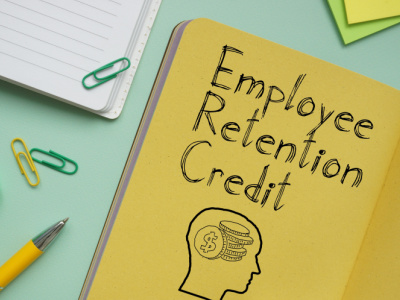IRS Launches Voluntary Disclosure Program for Erroneous Employee Retention Credits
 The COVID-19 pandemic caused significant financial problems for many businesses due to forced closures and other issues that limited their ability to generate revenue and pay wages to employees. In response, the IRS created the employee retention credit (ERC), which allowed employers to receive credits on payroll taxes so that they could continue paying wages to employees
The COVID-19 pandemic caused significant financial problems for many businesses due to forced closures and other issues that limited their ability to generate revenue and pay wages to employees. In response, the IRS created the employee retention credit (ERC), which allowed employers to receive credits on payroll taxes so that they could continue paying wages to employees
While this option was available in 2020 and 2021, some employers continued to claim employee retention credits in the subsequent years. While the IRS has performed tax audits of some employers and imposed penalties for erroneous ERC claims, it has also recognized that many of these claims occurred because employers received incorrect advice from tax return preparers or other parties. To address these concerns and help employers address issues related to ERC claims, the IRS has created a voluntary disclosure program.
Addressing concerns related to ERC claims and other tax issues can be a complex process. To ensure that they will be able to respond to tax audits, make any required payments to the IRS, and limit potential penalties, businesses may want to consider working with an attorney who has experience handling employment tax issues, IRS penalties, and other related matters.
Options for Addressing Erroneous ERC Claims
The ERC allowed employers to receive a credit for a percentage of qualified wages paid to employees in 2020 and 2021. However, if employers attempted to claim this credit in 2022 or subsequent tax years, they may be notified by the IRS that they will be required to repay any credits they received. Because some businesses may struggle to do so, the IRS has provided options meant to benefit these taxpayers.
Under the IRS’s voluntary disclosure program for ERC claims, businesses that have incorrectly claimed employee retention credits will only be required to repay 80% of the credits they received. If an employer is unable to repay the 80% in full, they may be able to request an installment plan in which they will pay off this amount over time. Interest and penalties generally will not be applied when repaying the IRS for incorrect credits, although taxpayers who set up installment plans will be required to pay any interest or penalties related to entering into these agreements.
A business will be able to utilize the voluntary disclosure program if it is not under criminal investigation by the IRS, it is not currently undergoing an audit for the period in which it claimed an incorrect credit, and the employer has not received a notice from the IRS demanding repayment for an ERC claim. A taxpayer will also be required to provide the IRS with information about any tax return preparers or advisors that assisted with ERC claims or advised them that they could claim these credits. The deadline for applying for the ERC voluntary disclosure program is March 22, 2024.
In cases where taxpayers have pending ERC claims, the IRS will allow for the withdrawal of these claims with no penalties. Taxpayers can use this withdrawal process if they made an ERC claim on an adjusted employment tax return that was filed only to claim the ERC without any other adjustments, and a claim has not yet been paid by the IRS.
Contact Our San Jose, CA Employment Tax Attorney
If you are concerned about potential penalties for claims related to the employee retention credit, John D. Teter Law Offices can advise you of the best options for minimizing the amount that you may be required to repay to the IRS. We can help you apply for the ERC voluntary disclosure program, or we can provide representation during tax audits related to these or other issues. Our San Jose tax lawyer will work to help you minimize your tax burdens and avoid penalties wherever possible. To arrange a consultation, contact our office at 408-866-1810.









